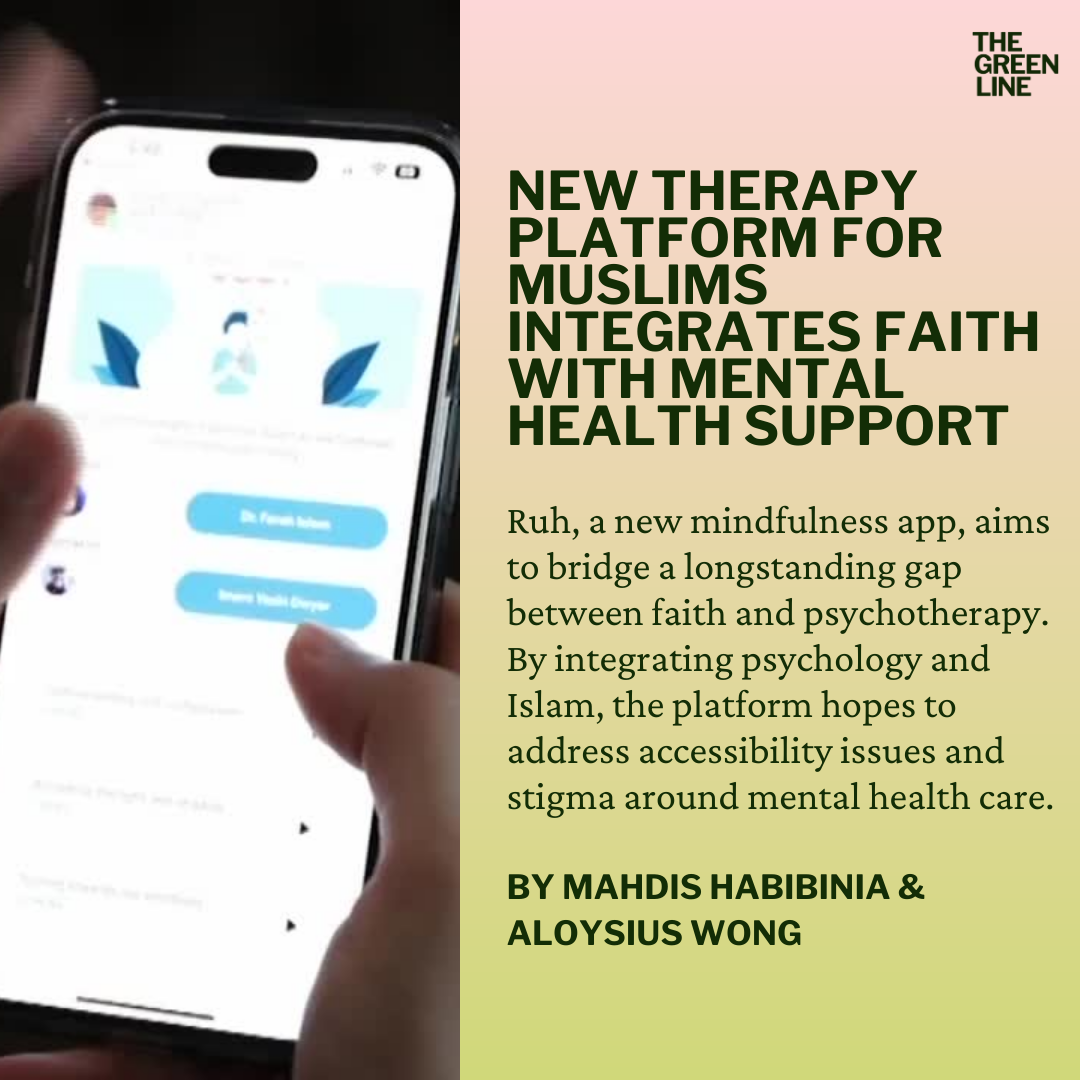Therapy platform bridges gap between faith and mental health support for Muslim community
THE GREEN LINE
ORIGINAL STORY
Therapy platform bridges gap between faith and mental health support for Muslim community
Co-founder says Ruh integrates 'spiritual element' missing in other mindfulness apps.
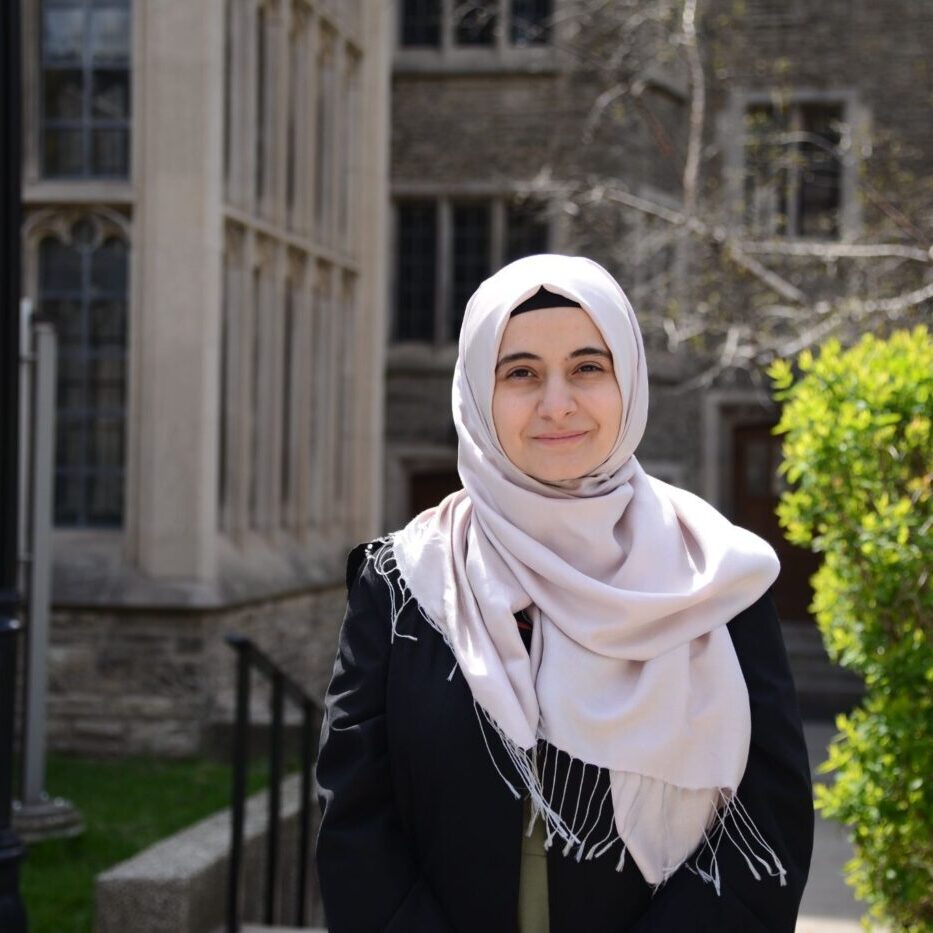
Humeyra Celebi, co-founder of Ruh, says their app integrates a 'spiritual element' missing in other mindfulness platforms.
📸: Aloysius Wong/The Green Line.

MAHDIS HABIBINIA
An Iranian-Canadian who immigrated to Toronto at age 4. Master of journalism student at Toronto Metropolitan University. Avid true crime binger who wholeheartedly supports the Oxford comma.
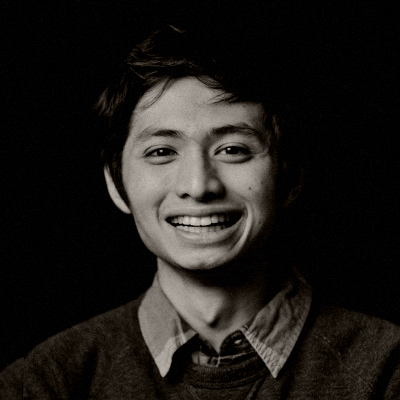
ALOYSIUS WONG
Currently a Master of Journalism student at Toronto Metropolitan University. He lives in North York where he prays that the Eglinton Crosstown will eventually be completed.
April 28, 2023
Finding mental health care in Toronto is hard enough, but accessing care that's sensitive to the Islamic faith or spirituality is even tougher.
Islam was the second most commonly reported religion in Canada in 2021, according to Statistics Canada, citing 1.8 million people. In 20 years, the Muslim population has also more than doubled.
However, research from the Centre for Addiction and Mental Health found that Muslims tend to use mental health services less than other groups, adding that “negative attitudes” and “misconceptions” are common barriers.
That’s why one local group created a global platform that provides mental health resources specifically for the Muslim community.
Ruh, which means soul or spirit in Arabic, is a mindfulness app that combines psychology with Islamic values. Ruh Care is a global directory with more than 500 Muslim therapists that streamlines the process of finding and accessing care.
Omar Khan, founder and CEO of Ruh, decided to launch Ruh after struggling to find a mental health app during the COVID-19 pandemic that resonated with him. He says most mindfulness apps were missing a “spiritual element,” something Khan says many other Muslims felt as well.
“We've actually found that there's a whole segment of people that exclude themselves from the benefits of mindfulness because they associate being mindful with their faith,” explained Khan.
“We advocate to go get therapy, but when it comes to actually finding a therapist to seek therapy from, it's hard,” he continued.
Co-founder Humeyra Celebi, who studied psychology, believes Ruh is closing a long-standing gap by providing that accessibility and streamlining the process.
“I would take notes on the signs thinking, ‘Oh, this matches with this in Islam.’ So I always had this mission for myself to merge Islam and psychology,” said Celebi on why it was important for her to be involved with Ruh. “And that was just, in my own world, [in] my own efforts trying to understand how this science fits with my faith.”
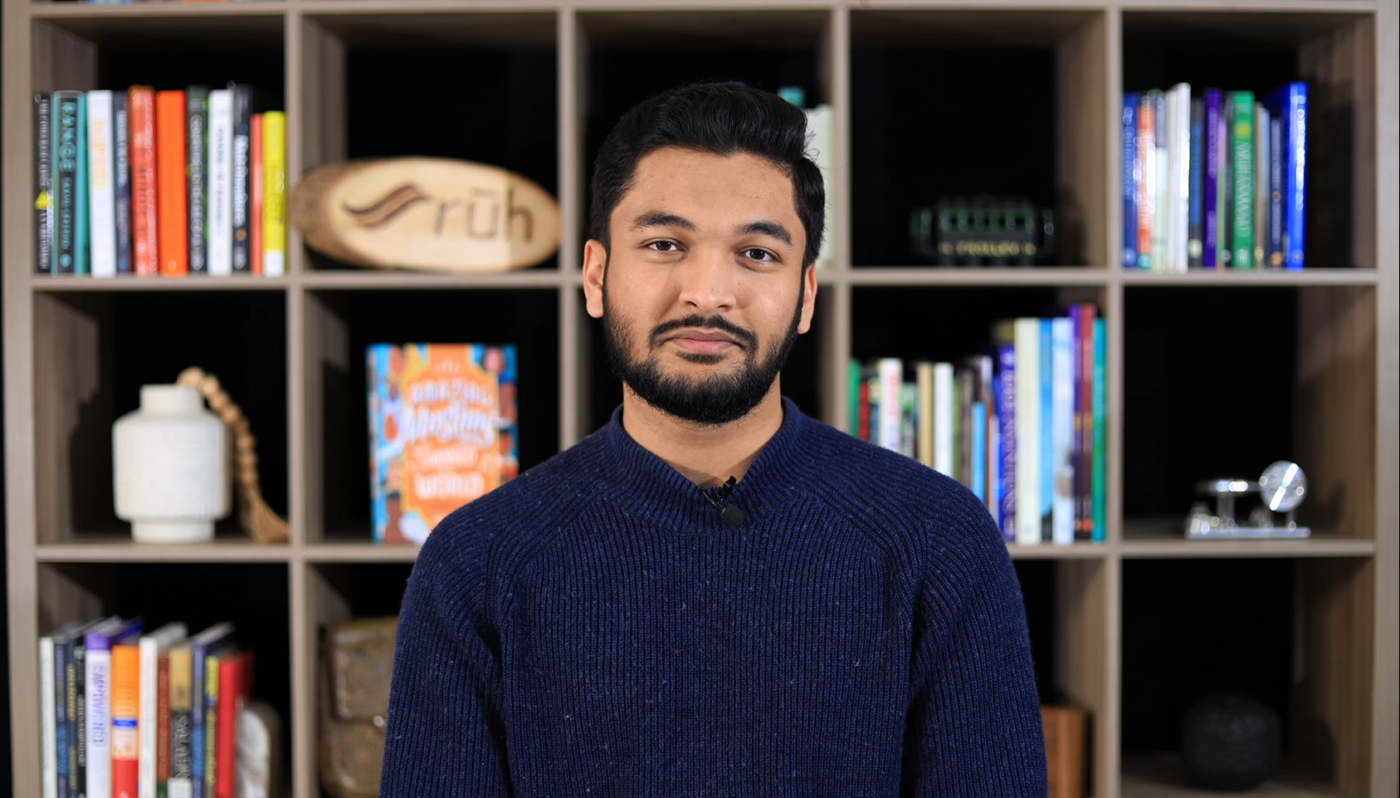
Omar Khan, co-founder of Ruh, created the app during the pandemic.

Khan explained one misconception is that Islam “doesn't have much to do with mindfulness or even mental health.” In fact, Muslims were one of the first to treat mental health and psychological disorders.
In the seventh to eighth centuries, healing institutions existed known as bimaristans which were hospitals largely funded by Muslim philanthropists. Bimaristans adopted a holistic approach to the needs of patients and their families, including spiritual, mental, physical and social needs.
Sadaf Jamal knows firsthand how important this is after experiencing disconnected mental health support as a patient herself, citing “small discouraging microaggressions” that resulted from her visible identity.
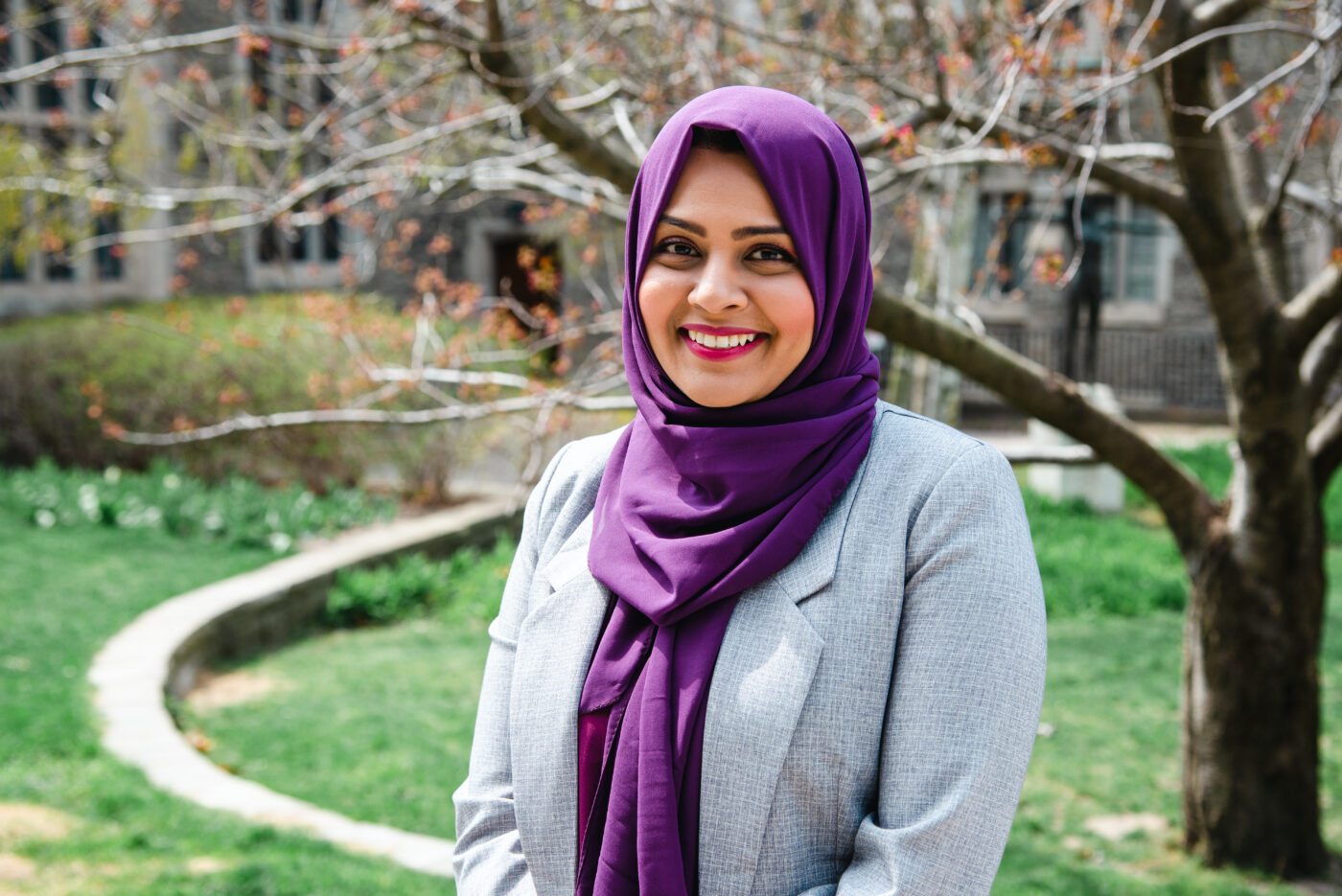
Sadaf Jamal, psychotherapist on Ruh Care, poses for a photo outside Emmanuel College on April 20, 2023.

As a registered psychotherapist who is also on Ruh Care, Jamal says it’s important to provide a “non-judgmental space” to her patients so they don't have to be “apologetic about their identity.”
“And when you allow that space to people where they can be themselves, they can truly embrace their healing process,” said Jamal.
Imam Yasin Dwyer, who is the voice of the Ruh App’s episodes and lead chaplain at the University of Toronto, said taking care of ourselves is about balancing faith with doing “whatever we can, whatever is available to us to improve our life.”
“This is really what we have to keep in mind when it comes to addressing the intersection between psychology, spiritual health, because ultimately it all leads to the same goal,” Dwyer added.
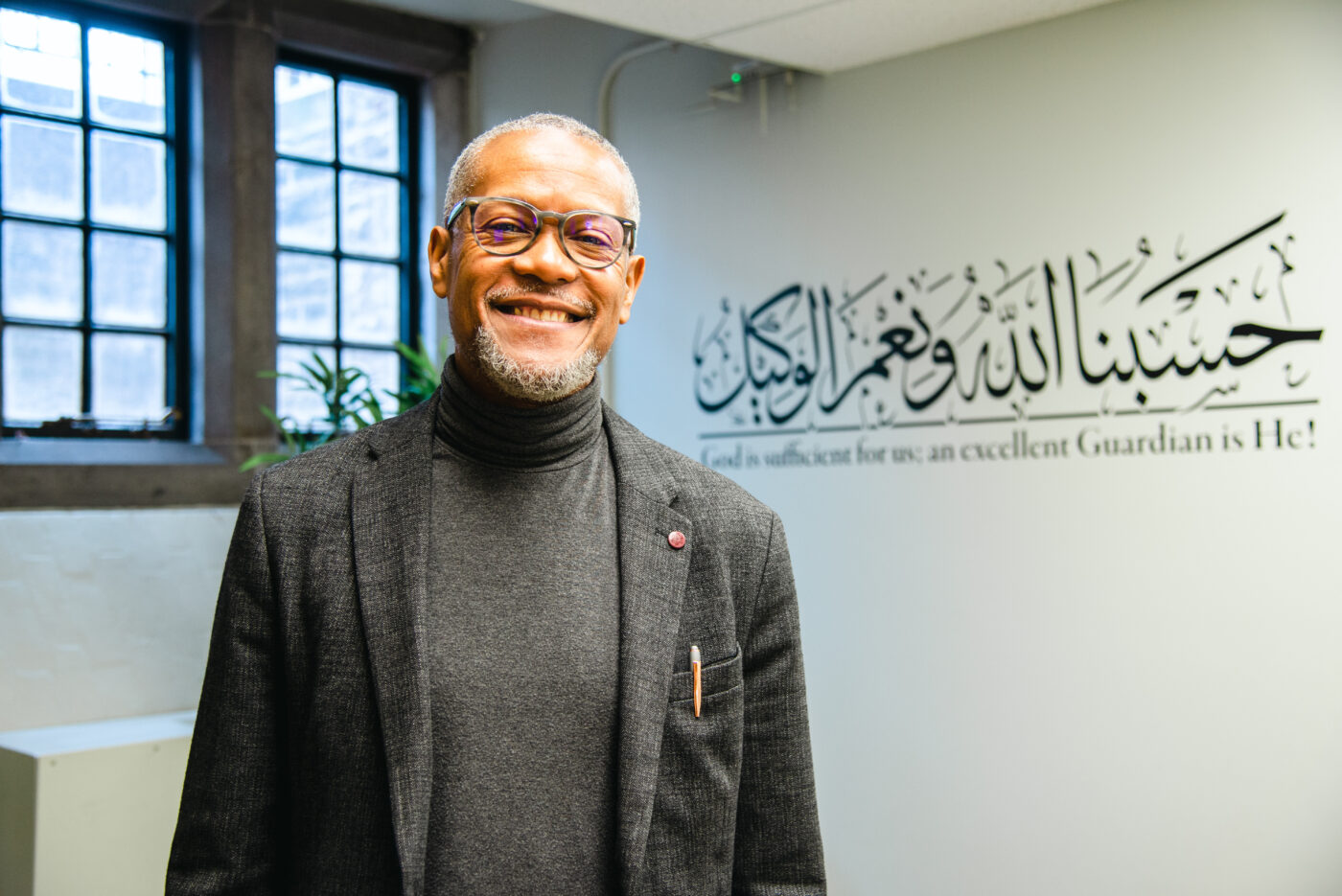
Imam Yasin Dwyer, the voice of Ruh, stands in his chaplaincy office in Emmanuel College on April 20, 2023.

Dwyer also says that the goal of holistic wellbeing aligns with the traditions of Islam.
“Our tradition has three very specific dimensions. One is Islam, which has to do with what we practice, what we do. It has a dimension concerning what we must know, which is the theological dimension … and a third dimension concerning what we must become, which is called in Arabic ‘Ihsan,’ which literally means beautification or excellence.
“So mental health or self-development relates to this journey to become something better than we were yesterday,” Dwyer said.
Barriers to care still persist, however, especially due to cultural stigma around mental illness and seeking therapy. Ruh seeks to address that alongside partners like Khalil Center Canada whose clinicians were among the first to join Ruh Care.
“Muslims will feel that perhaps their spiritual connection isn't as strong with God and that's why they're having these symptoms of mental illness,” said Kashmala Qasim, researcher and workshop coordinator at the Khalil Center. “But when it comes to a physical illness, we're more than happy to go to a family doctor.”
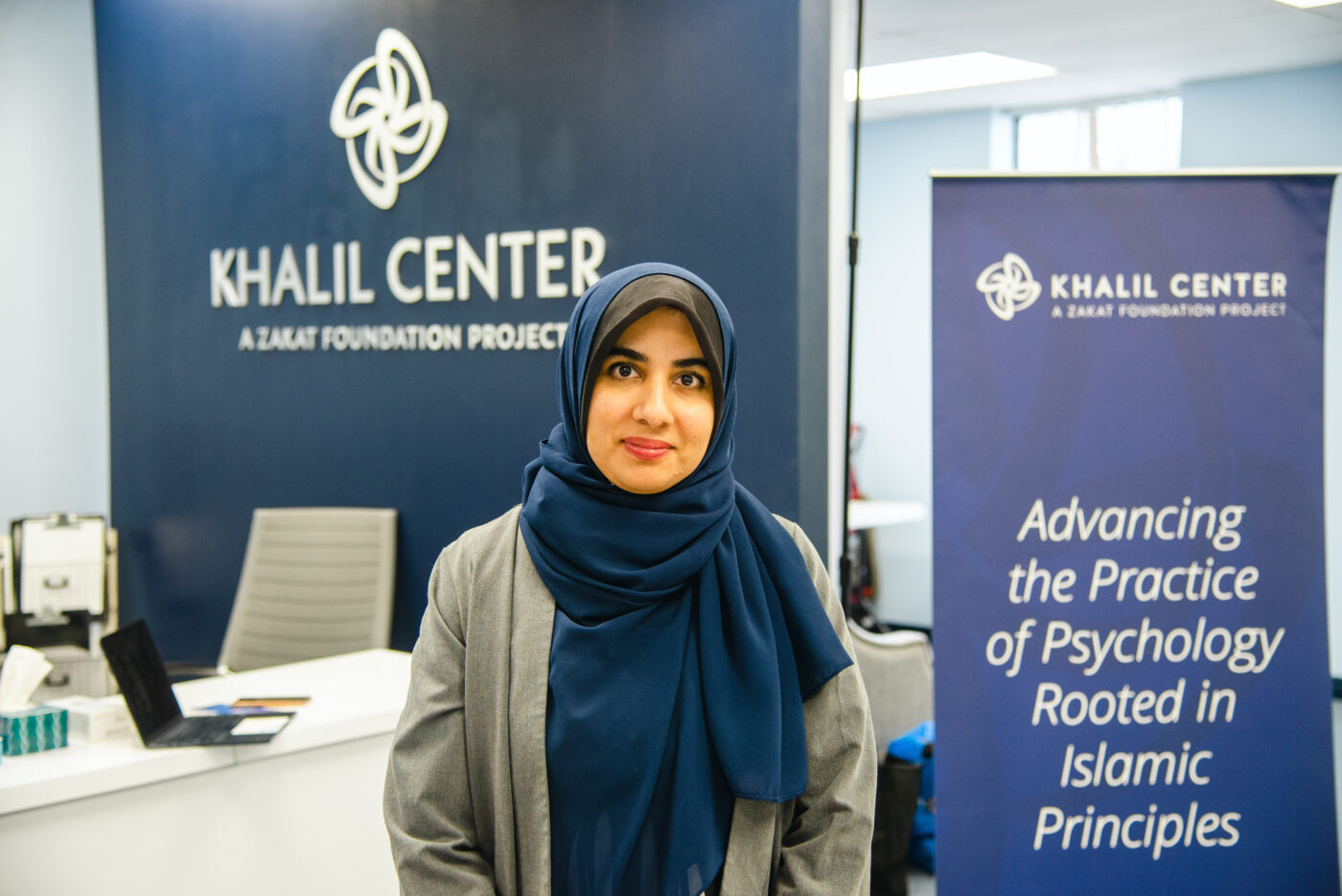
Kashmala Qasim, researcher and workshop coordinator at the Khalil Center, works with her team to address mental health stigma in the Muslim community.

Qasim says despite coming a long way – for example, Imams or mosques addressing mental health in their sermons and Muslim mental health conferences – she believes a part of the stigma that persists “on the ground” comes from misinterpreting certain religious beliefs.
“[For example], we have something called the jinn, which is like a supernatural creation, evil eye magic. There are beliefs within the Muslim tradition around that as well,” said Qasim.
“So, I think the stigma comes from confusing that with a legitimate psychological illness or the symptoms of clinical depression … [or] symptoms of schizophrenia or a psychosis episode,” Qasim continued.
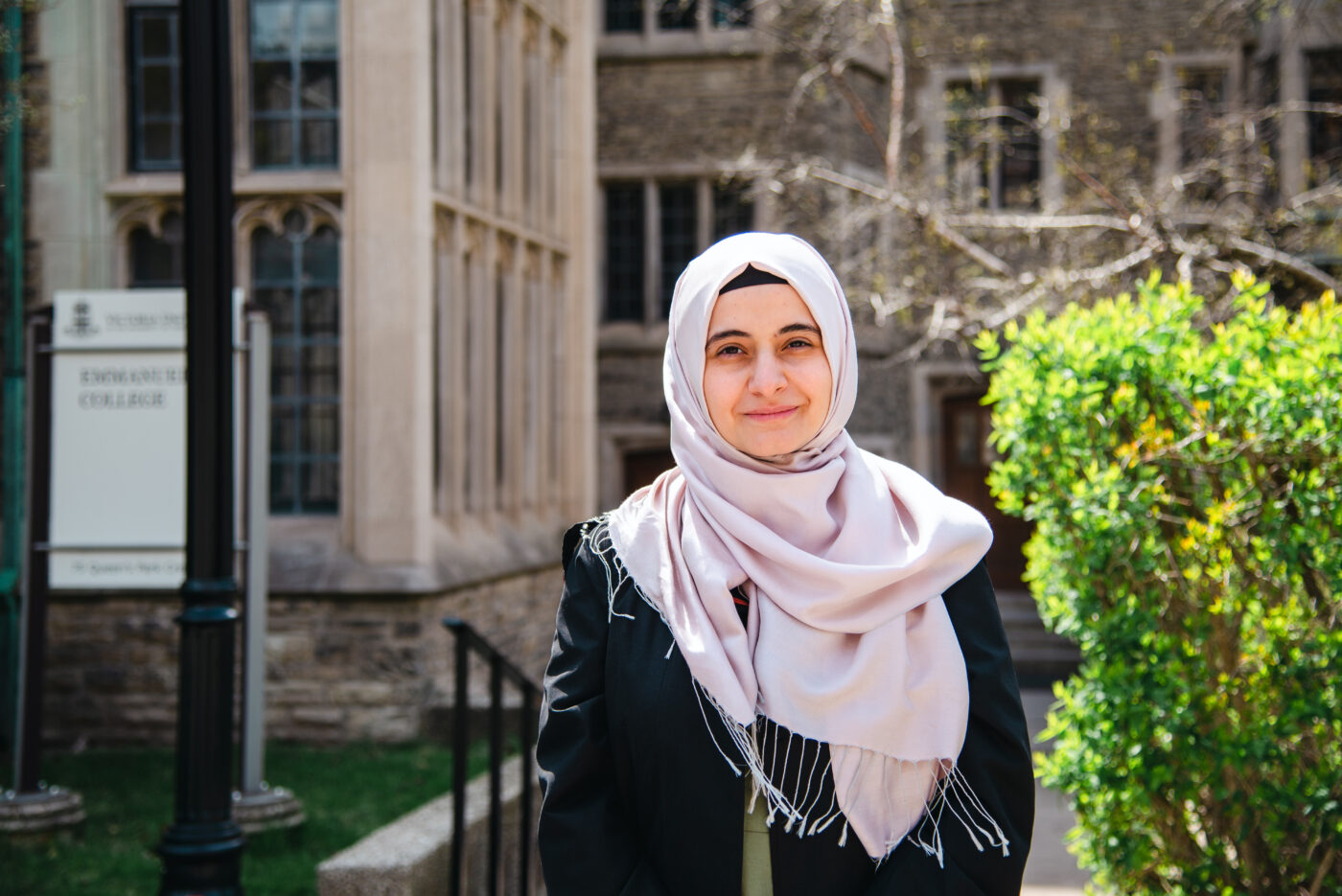
Humeyra Celebi, co-founder of Ruh, visits Emmanuel College on April 20, 2023.

Open dialogue on mental health and religion is key to reducing that stigma, said co-founder Celebi. She hopes an upcoming feature on Ruh will help encourage that.
“Ruh Conversations was inspired by Yaqeen Conversations from Yaqeen Institute, which is basically a deck of cards, if you will, with questions around religion to initiate that conversation within the community,” explained Celebi.
And Ruh’s team wants to build off of that journey, citing one particular vision for its future.
“Something like a clinic or telehealth platform,” said Celebi. “With Ruh Care, we are linking the individuals with the professionals, but we want to have a platform where they could get therapy.”
Dwyer says he believes in Ruh’s overall mission because it “fills a vacuum” often found within the Muslim community.
Fact-Check Yourself
Sources and
further reading
Don't take our word for it —
check our sources for yourself.

